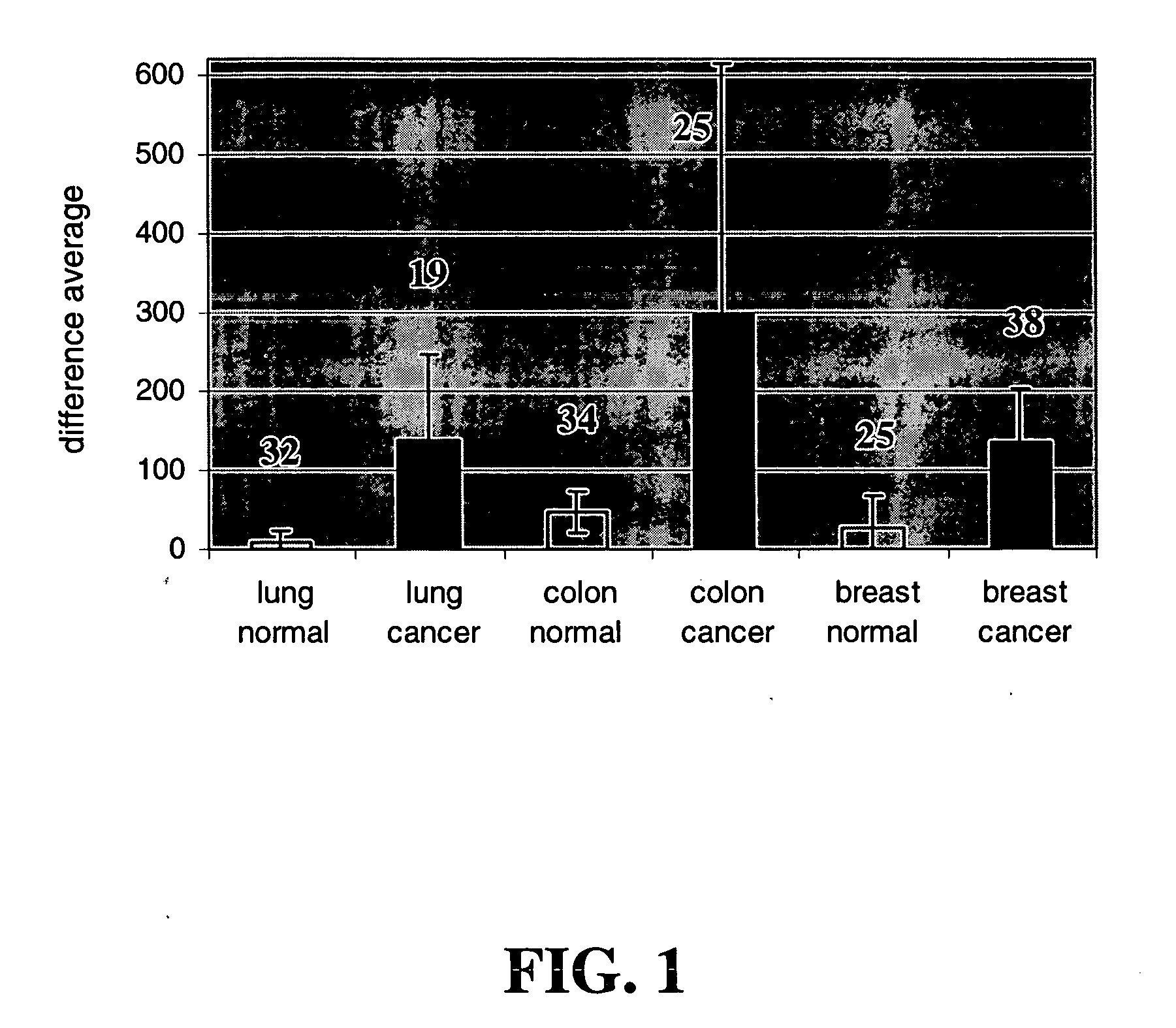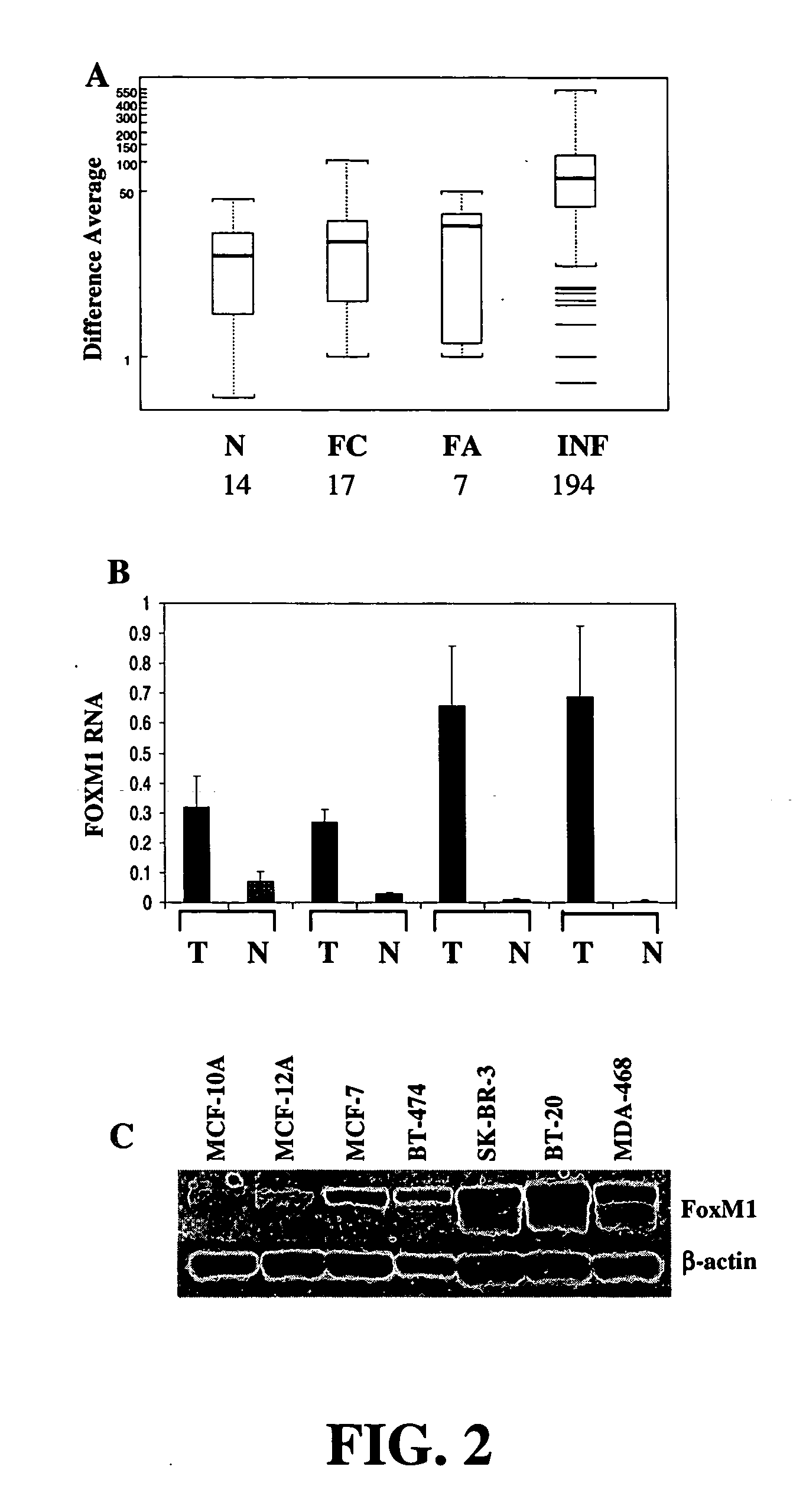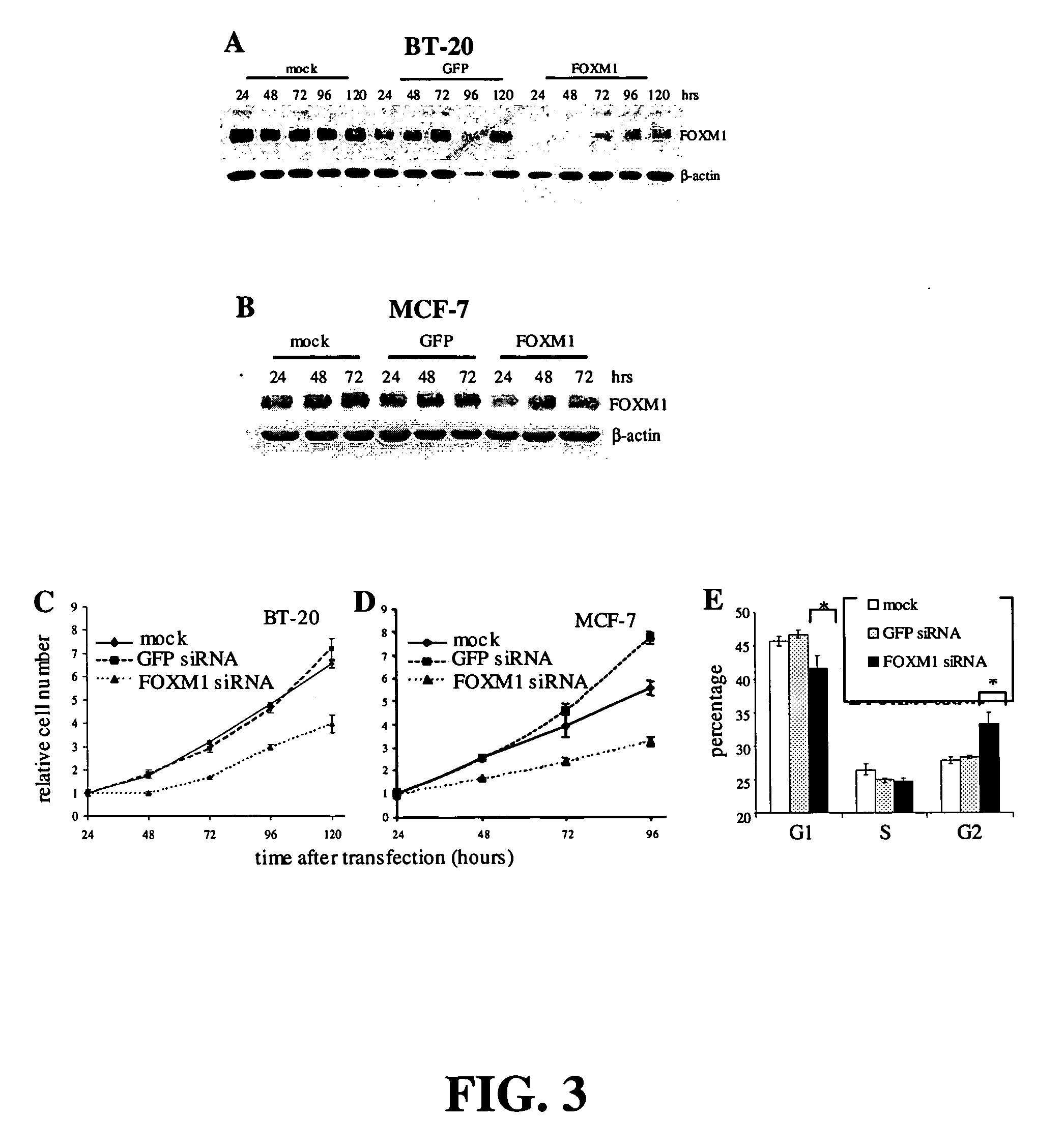Diagnoses and therapeutics for cancer
a cancer and cancer technology, applied in the field of cancer diagnosis and treatment, can solve the problems of delayed mitotic cell death, mitotic spindle defect, mitotic catastrophe, etc., and achieve the effects of reducing cancer cell proliferation, reducing the protein level or activity of foxm1, and modulating foxm1 activity
- Summary
- Abstract
- Description
- Claims
- Application Information
AI Technical Summary
Benefits of technology
Problems solved by technology
Method used
Image
Examples
example 1
Determination of Differential Gene Expression of FOXM1
[0085] To determine genes differentially expressed in various cancer and normal tissues, expression profiling data from primary human cancer samples were obtained from the Gene Logic BioExpress Database (Gaithersburg, Md.). Thirty-two samples from normal lung tissues, nineteen samples from lung cancer tissues, thirty-four samples from normal colon tissues, twenty-five samples from colon cancer tissue, twenty-five samples from normal breast tissues, and thirty-eight samples from breast cancer tissues were compared on Affymetrix HgU95Av2 gene chips (Santa Clara, Calif.), and analyzed using Affymetrix® GeneChip™ analysis software.
[0086] Additionally, isolated RNAs from each tissue sample were hybridized to Affymetrix HGU95A chips. The RNAs hybridized to the chips were scanned on a Hewlett-Packard GeneArray Scanner, Model G2500A (Palo Alto, Calif.). Analyses of the data from the scans were performed using GeneChip™ 3.1 program (Aff...
example 2
The FOXM1 Transcript is Significantly Increased in Primary Infiltrating Ductal Carcinomas
[0088] Primary tissue expression profiling data. Expression profiling data from primary human cancer samples was obtained from the Gene Logic BioExpress Database (Gaithersburg, Md.). Infiltrating ductal carcinoma samples (n=194) were chosen at random from the database. Normal samples (n=14) were taken from patients undergoing reduction mammoplasty. Data from patients with fibrocystic breast disease (n=10) and fibroadenoma (n=7) were filtered to remove patients with concomitant malignant disease elsewhere in the breast at the time of surgery. RNA from each sample was analyzed on Affymetrix HgU95A chips and normalized with MAS 4.0. Difference averages for qualifier 34715_at were used for statistical analysis, and negative difference averages were assigned a value of 1. P-values were calculated using the Mann-Whitney U-test.
[0089] Taqman analysis. Breast cancer and adjacent normal tissue samples,...
example 3
Suppression of Cell Growth with FOXM1 siRNA
[0096] Cell Culture: human breast tumor cell lines BT-20 and MCF-7 were obtained from American Type Culture Collection (ATCC) (Manassas, Va.). BT-20 cells were maintained in Eagle's Minimum Essential medium with 10% Fetal Bovine Serum (FBS). MCF-7 cells were cultured in Dulbecco's Modified Eagle's Medium with 10% FBS.
[0097] Cell Proliferation Assays. The cell proliferation reagent WST-1 (F. Hoffmann-La Roche Ltd.), which measures cleavage of the tetrazolium salt WST-1 by mitochondrial dehydrogenases, was used to assay cell number. Cells were trypsinized 24 hours after transfection and plated in 96-well plates. Absorbance at 450 nm was assayed 2 hours after adding WST-1.
[0098] RNAi. Annealed, purified, double-stranded oligonucleotides were obtained from Dharmacon (Lafayette, Colo.). The FOXM1 siRNA sequence was CCUUUCCCUGCACGACAUGdTdT (SEQ ID NO: 4). The GFP control oligo sequence was CAAGCUGACCCUGAAGUUCdTdT (SEQ ID NO: 5). For transfecti...
PUM
| Property | Measurement | Unit |
|---|---|---|
| pH | aaaaa | aaaaa |
| weight percent | aaaaa | aaaaa |
| pH | aaaaa | aaaaa |
Abstract
Description
Claims
Application Information
 Login to View More
Login to View More - R&D
- Intellectual Property
- Life Sciences
- Materials
- Tech Scout
- Unparalleled Data Quality
- Higher Quality Content
- 60% Fewer Hallucinations
Browse by: Latest US Patents, China's latest patents, Technical Efficacy Thesaurus, Application Domain, Technology Topic, Popular Technical Reports.
© 2025 PatSnap. All rights reserved.Legal|Privacy policy|Modern Slavery Act Transparency Statement|Sitemap|About US| Contact US: help@patsnap.com



